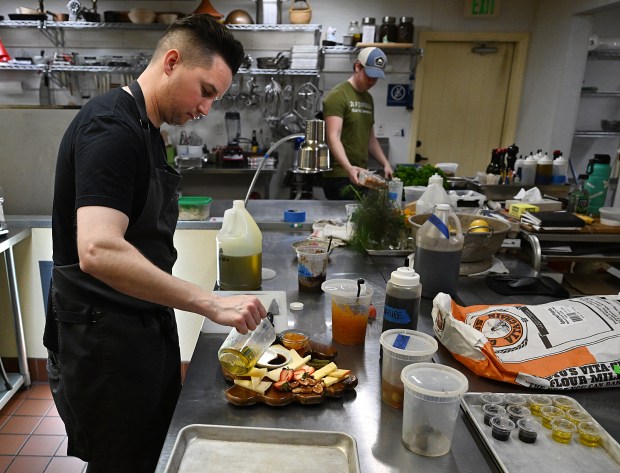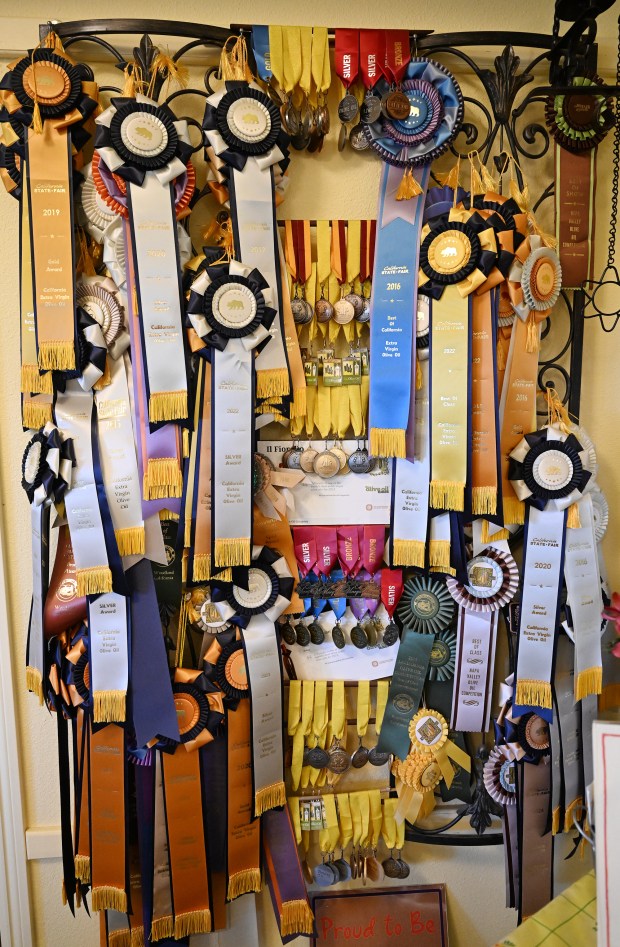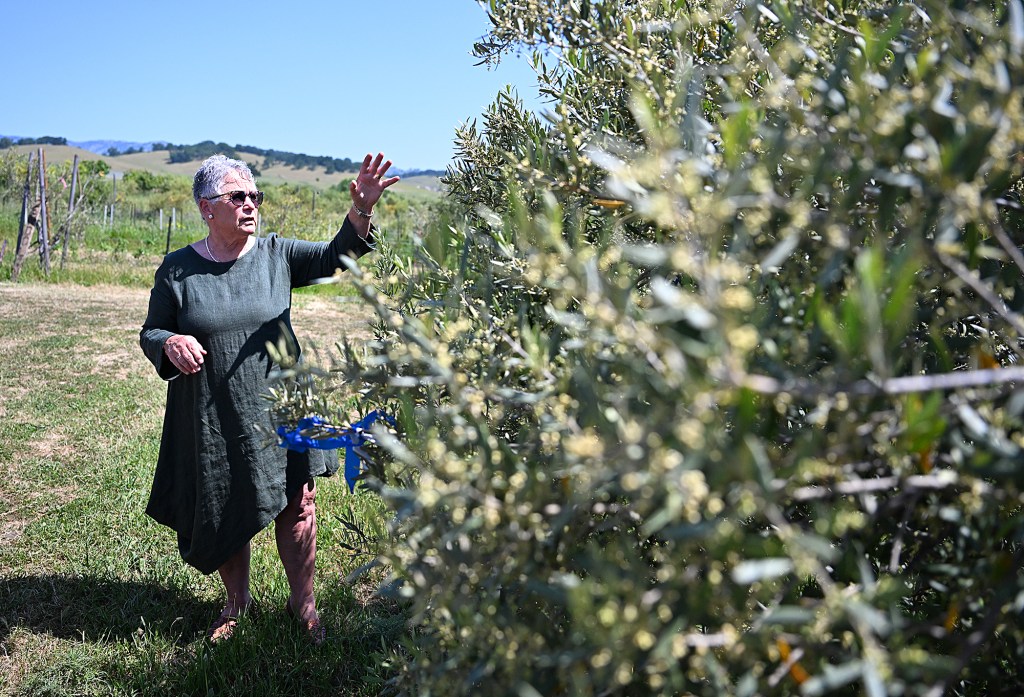When Ann Sievers and her husband Mark launched IL Fiorello Olive Oil Company back in 2007, they had a vision rooted in quality, sustainability, and education. Nearly two decades later, that vision has matured into one of the world’s most highly regarded olive oil operations.
And if the wall of colorful award ribbons in their visitor center is any indication — they’re absolutely crushing it.
Nestled along Mankas Corner Road in the heart of Suisun Valley, IL Fiorello is a fully certified organic farm. Ann, the company’s master miller, has led the charge in producing world-class extra virgin olive oil, earning global recognition for her meticulous process and deep respect for the craft.
This year, IL Fiorello was ranked No. 9 in the United States and No. 25 globally by the “Olive Oil Ranking” following results from the prestigious World Olive Oil Competition — the largest olive oil quality contest on the planet. Competing against hundreds of producers from dozens of countries, IL Fiorello stands out for its consistently high-quality oils and artisan production methods.
 Chef Tim Saenz adds olive oil to a cheese board for the Il Fiorello Olive Oil Company bistro in the Suisun Valley. (Chris Riley/The Reporter)
Chef Tim Saenz adds olive oil to a cheese board for the Il Fiorello Olive Oil Company bistro in the Suisun Valley. (Chris Riley/The Reporter)
“This recognition is a testament to our team’s passion, dedication, and deep respect for the craft of olive oil making,” Ann said.
So far this year alone, the company has racked up 24 awards from major competitions in New York, Los Angeles, and the California State Fair — including two Best of Class, eight golds, and 14 silvers. More results are pending from the Japan Olive Oil Prize, where the team is hoping to add more medals to its growing collection.
The secret to their success starts with the trees. The farm is home to 300 olive trees representing 14 different varieties, hailing from Italy, France, Greece, Tunisia, and Spain. The oils are milled on-site using modern centrifuge technology — never pressed, as Ann is quick to point out.
“No one presses olives anymore,” she says with a smile. “We use a centrifuge.”
Visitors to IL Fiorello can take a tour of the mill, where they’ll learn exactly how the olives — seeds and all — are ground into paste, and then spun to separate oil from pulp and impurities. It’s a process that blends ancient tradition with cutting-edge science.
But olive oil is just one part of IL Fiorello’s organic ecosystem. The farm also features extensive gardens that feed the on-site bistro, where chefs create meals designed to highlight the oils.
“I grow because it’s healthy,” Ann said. “It’s a valuable food product, an unsaturated fat, and it pairs well with all sorts of food. And it’s delicious.”
 Numerous awards are piled on display in the visitors center at Il Fiorello Olive Oil Company in Fairfield. (Chris Riley/The Reporter)
Numerous awards are piled on display in the visitors center at Il Fiorello Olive Oil Company in Fairfield. (Chris Riley/The Reporter)
Her organic gardens boast 72 varieties of tomatoes, 65 kinds of peppers, more than 30 types of squash and cucumbers, along with fresh basil, herbs, and eggs from their own flock of chickens. Everything is grown organically, right down to hand-weeding and composting.
“We’re the only organic farm in the area doing all of this,” Ann notes. “It’s important to protect the land and the food we grow.”
Education is another core mission at IL Fiorello. The farm offers classes where chefs demonstrate how to pair oils with specific dishes.
“I want people to understand olive oil,” Ann said. “There are so many misconceptions. For example, you don’t just dip bread in it — that’s not how it’s used around the world. It’s a culinary ingredient meant to be paired with different foods.”
And for those who grow olives but don’t have a mill? Ann also processes crops for some 300 growers across the state, packaging the oils in 55-gallon drums to be used in wineries and specialty food businesses throughout Napa and beyond.
Open daily from 11 a.m. to 5 p.m., IL Fiorello welcomes anyone curious to learn more about the world of olive oil — from the soil it grows in to the flavors it brings to the table.
“Farm to plate, farm to fork — those are just catchphrases,” Ann said. “We’ve been eating from farms for thousands of years.”

